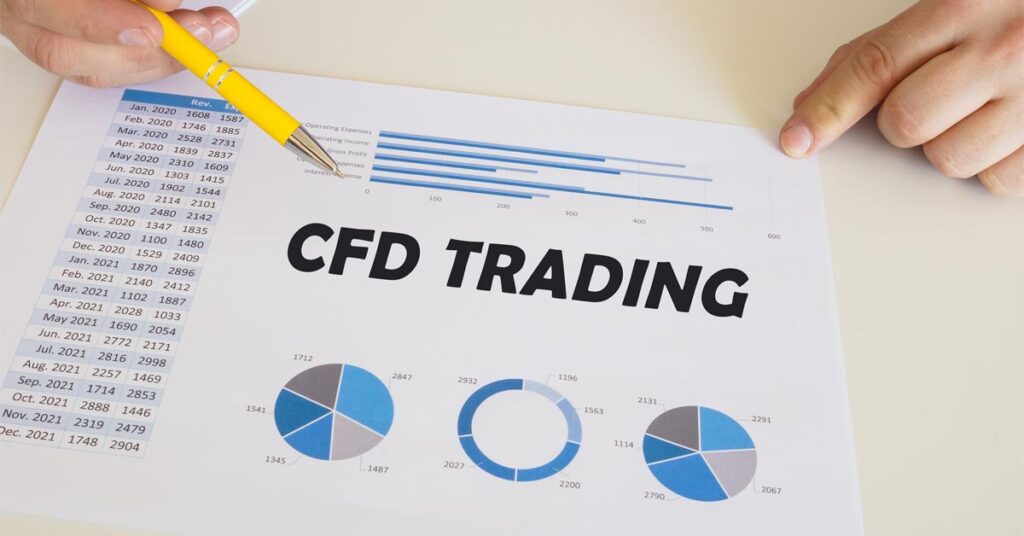Do you know what forex slippage is? Are you concerned about it as a currency trader? If so, then this blog post is for you. Here we will discuss the causes of forex slippage, how to identify and manage it, and why you should be aware of it when trading in the foreign exchange market.
By understanding these concepts, as outlined at www.fundedtradingplus.com/a-guide-for-dealing-with-forex-order-slippage, traders can equip themselves with the knowledge needed to make more informed decisions when dealing with high-volatility instruments like currencies.
What is Forex slippage and why does it occur?
Forex Slippage can be a thorn in the side of traders. It occurs when an order is executed at a price that is different from the one requested. The difference between the requested price and the actual price is known as slippage in the trading world. Slippage can happen for a number of reasons, including poor liquidity, high volatility, and poor order execution. It can be frustrating, especially when it unexpectedly results in a loss. However, it is a common occurrence in the forex market, and traders need to be aware of the reasons why it occurs and how to manage it effectively.
The basics of trading orders and how they relate to slippage
Trading orders can be a bit confusing, especially if you’re new to the world of investing. But don’t worry, we’ve got you covered. At their core, trading orders are simply instructions to your broker on what to buy or sell on your behalf. There are different types of orders, ranging from basic market orders to more complex limit and stop orders.
If executed properly, they allow you to enter and exit trades with precision and ease. However, it’s important to keep in mind that slippage can occur, affecting the price at which your order is executed. We’ll dive deeper into what slippage is and how it relates to trading orders in upcoming articles, but for now, it’s important to understand the basics of different order types and how they can help you achieve your investment goals.
Different types of slippage, including requotes and spikes
Slippage is a common occurrence in the world of trading, and there are different types that every trader should be aware of. Requotes and spikes are two of the most common forms of slippage that can greatly affect your trades. Requotes occur when the market moves so quickly that your broker is unable to fill your order at the price you requested, resulting in a new quote being given.
On the other hand, spikes happen when the price suddenly shoots up or down, causing your order to be filled at a different price than what you intended. Both types can have a significant impact on your profits or losses, making it crucial to understand how they operate and implement strategies to minimize their effects.
Causes of slippage, such as market volatility, liquidity issues, or brokerage fees
Slippage, or the difference between the expected price of a trade and the actual price at which the trade is executed, can be caused by a variety of factors. Market volatility, for instance, can make it difficult for traders to get their desired price as the market rapidly moves up or down.
Liquidity issues, such as low trading volumes or a lack of available buyers or sellers, can also contribute to slippage. In addition, brokerage fees can eat into your profits and add to the cost of trading, leading to unexpected slippage.
Understanding the causes of slippage is an essential step toward mitigating its impact on your trading strategy.
How to prevent and manage slippage to minimize losses
Slippage is an unfortunate and prevalent occurrence in trading that can lead to significant financial losses. However, with careful prevention and management, you can minimize your losses and keep your profits on track. One key strategy to prevent slippage is to use limit orders, which allow you to set a maximum price you are willing to pay or a minimum price you are willing to sell at.
Additionally, keeping a close eye on market conditions and using stop-loss orders can help you quickly exit trades before the effects of slippage become too severe. By implementing these precautions and staying disciplined, you can navigate the unpredictable nature of the market and protect your investments.
Best practices for managing risk in the Forex market
Managing risk in the forex market can be a daunting task, but following some best practices can help mitigate potential losses. One key strategy is to diversify your portfolio by investing in multiple currencies and not putting all your eggs in one basket. Another crucial practice is setting clear stop-loss orders to limit losses and prevent emotions from taking over during market fluctuations.
Staying informed on global economic developments is also vital, as these factors can greatly affect currency values. Additionally, leveraging risk management tools such as hedging and options can provide added protection. By implementing these best practices and staying disciplined, traders can effectively manage risk in the dynamic forex market.
Summary
From this blog post, it is clear that forex slippage occurs when the price of a currency pair moves rapidly. Knowing how to identify and recognize the different types of slippage, as well as the fundamentals of forex orders and their implications for slippage, is an important part of being a successful trader. It is also important to understand why slippage happens and how you can prevent or minimize it in order to reduce losses from trading in the forex markets.
By having a good understanding of these topics, traders should be better equipped to manage risk in their own trading sessions and make informed decisions when dealing with slippage-related issues. Additionally, new traders should take the time to understand how to identify and mitigate risks involved with trading currencies so that they can spot patterns and hopefully maximize their profits. All in all, knowledge is power when it comes to engaging in financial negotiations in the forex markets, so brushing up on these concepts will undoubtedly prove beneficial for both beginners and expert traders alike.
ⓘ LAFFAZ is not responsible for the content of external sites. Users are required to read and abide by our Terms & Conditions.








